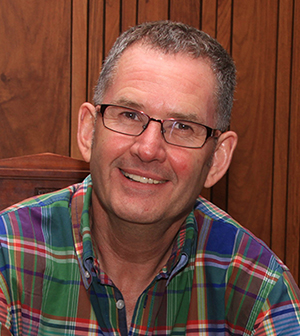
The largest provider of business education in Africa and one of the largest in the world

Prof Paul Prinsloo
Amid a global pandemic, schools and universities have sped up their entry into the digital environment, but are some racing ahead while others are being left behind? Questions around educational equality and inequality in a digital world are coming to the fore through a global research partnership in which Unisa’s Prof Paul Prinsloo is one of the principal investigators.
The six-country collaboration is being funded through a grant of 1.478 million Euro (approximately R25 million) from the Riksbankens Jubileumsfond in Sweden and is entitled "Reconfigurations of educational in/equality in a digital world (RED)".
It was due to have commenced during 2020 but the project’s start date was moved to April 2021 to allow for adjustments necessitated by the Covid-19 pandemic. Despite the initial delay, the RED partnership is on track and Prinsloo and two co-researchers at Unisa are hard at work to ensure they meet their first deadlines, which are looming large.
His fellow researchers are Dr Chinaza Uleanya, a postdoctoral researcher appointed to the research project, and Mr Godfrey Muyambi, a doctoral candidate within the College of Education.
"We are excited that the first set of deliverables, due before July 2021, includes co-authored articles presenting critical case studies, as well as comparative studies," says Prinsloo, ODL Research Professor in the College of Economic and Management Sciences (CEMS). "The teams are also in the process of selecting secondary schools in South Africa and Botswana, and applying for ethical clearance from the respective schools and university authorities."
While the Unisa researchers are focusing on Southern Africa, other members of the global team are investigating the impact of digital education on equality and inequality in Latin America (Argentina and Mexico) and in Northern/Central Europe (Germany and Sweden).
In addition to Prinsloo, the other principal investigators are Felicitas Macgilchrist in Germany, Inés Dussel in Mexico and Thomas Hillman in Sweden. With each of these principal investigators overseeing a number of postdoctoral fellows and PhD researchers, the total number of researchers involved in the project is 14.
The current focus of the project is on mapping the way "supranational" organisations inform and impact on national policy and the strategic development of ICT and education. This includes organisations such as the World Bank, the World Economic Forum (WEF), the World Trade Organization (WTO), the United Nations Educational, Scientific and Cultural Organisation (UNESCO), and the Organisation for Economic Cooperation and Development (OECD).
"An interesting group of stakeholders in this 'supranational' stakeholder category are Google, Facebook and various other venture capital alliances, which are playing an increasing role in informing and shaping policy, strategy and practice," says Prinsloo. He adds: "With increasing global concerns about the collection, analysis and use of student data, this phase of the research project will also include a critical analysis of legislation and policies pertaining to the protection of student personal information."
This macro-analysis will be followed by a critical assessment of the data and digital infrastructures in each of the six countries, including the role players and networks, and the impact of these on the provision and use of ICTS in classrooms.
The project, which runs until 2023, is expected to have a material impact on public education policies and practices.
"Prof Paul Prinsloo’s involvement in this externally funded research project is bound to influence policymakers, practitioners, school managers and the students and learners within public education towards more equitable integration of technology in education," says Prof Annemarie Davis, Head: Office of Graduate Studies and Research at CEMS.
Commenting on the expertise he brings to the project as one of its principal investigators, she says he offers theoretical, methodological and empirical expertise as a recognised scholar in open and distance learning. "Prof Prinsloo provides critical perspectives from a range of theoretical lenses such as decolonisation and Southern theories, new materialism, surveillance studies and ethical data practices. CEMS is extremely proud and honoured to have him in the College."
More information on the project and the researchers involved can be accessed here.
* Submitted by Unisa Research Support Directorate
Publish date: 2021-06-17 00:00:00.0